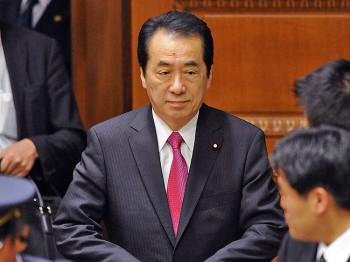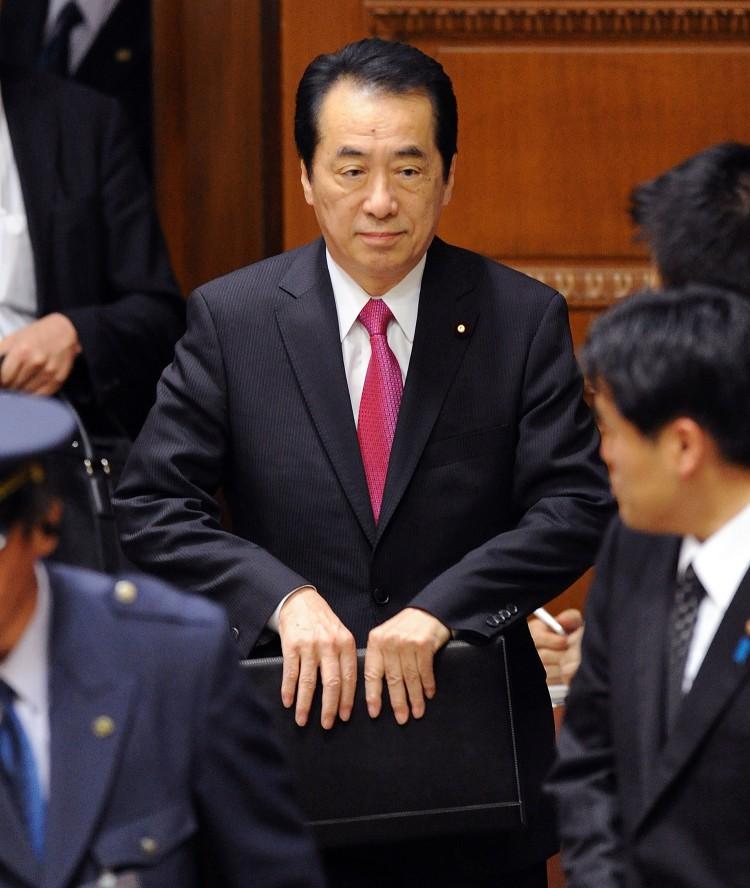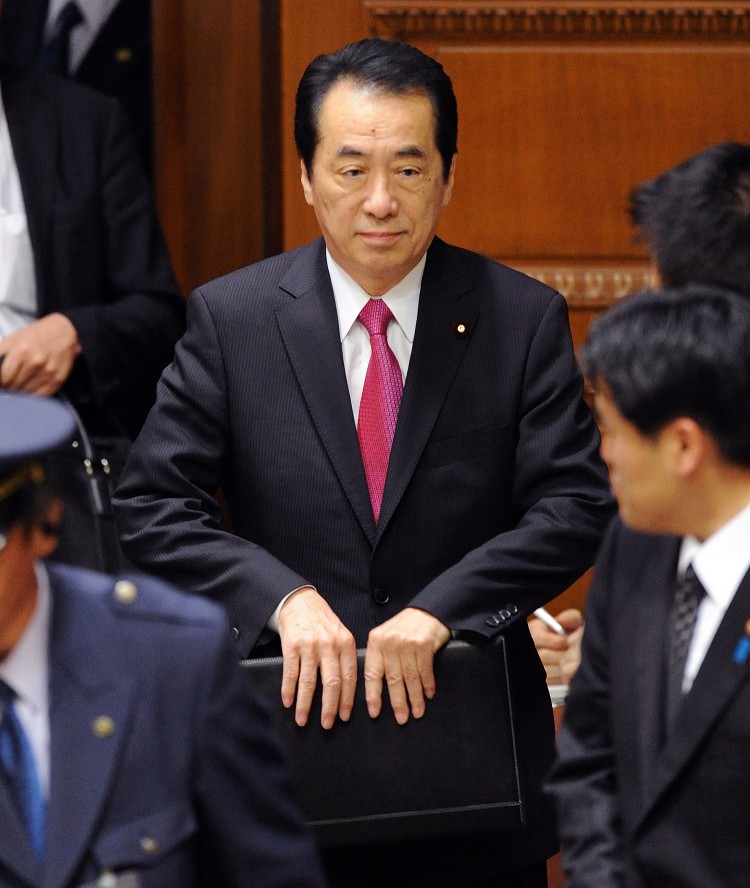Japanese PM Could Step Down in 10 Days
Japanese Prime Minister Naoto Kan faces a no-confidence motion in Parliament on Thursday afternoon, which could cost him the leadership just a year after he took office.

Japanese Prime Minister Naoto Kan (C) attends a debate with opposition party leaders at the parliament in Tokyo on June 1. Kan, struggling with the quake disaster response and a flagging economy, is to face the threat of a no-confidence motion by oppositions and even rebels from his own party. Toshifumi Kitamura/AFP/Getty Images
|Updated:





